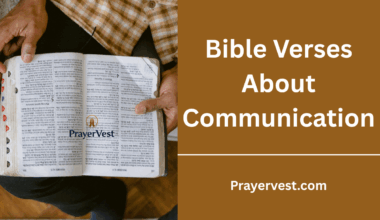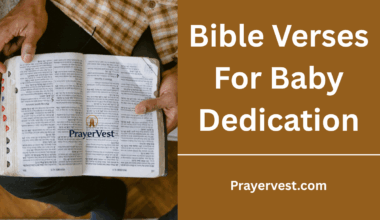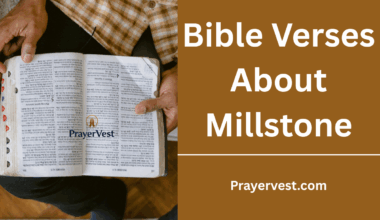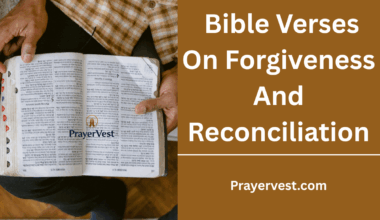One of the most amazing accounts of faith and redemption found in the Bible is the story of Rahab. Rahab was a notorious prostitute in Jericho, but her life changed drastically when she decided to follow the God of Israel. She went from being a shamed woman to a religious heroine when she concealed the Hebrew spies and professed her faith in the Lord.
Rahab’s tale is used in the Scriptures to demonstrate that anybody who believes can be saved by God’s grace, which is unrestricted by one’s position, history, or situation. Her presence in Hebrews 11’s “Hall of Faith” and Jesus Christ’s lineage is a powerful illustration of God’s capacity to alter any life narrative.
Strong themes of trust, bravery, and divine mercy are revealed in the Bible passages regarding Rahab. Her audacious choice to defend the spies was a statement of loyalty to the real God, not just a deed of goodwill. Rahab thought that God’s promises to Israel were real, even though he was surrounded by a city that was going to be destroyed.
Because she took action because of her religion, she and her family were exempt from condemnation. These verses demonstrate that faith is brave obedience, even at tremendous personal cost, rather than passive belief. Every Christian is encouraged by Rahab’s example to have whole faith in God, especially in the face of uncertainty.
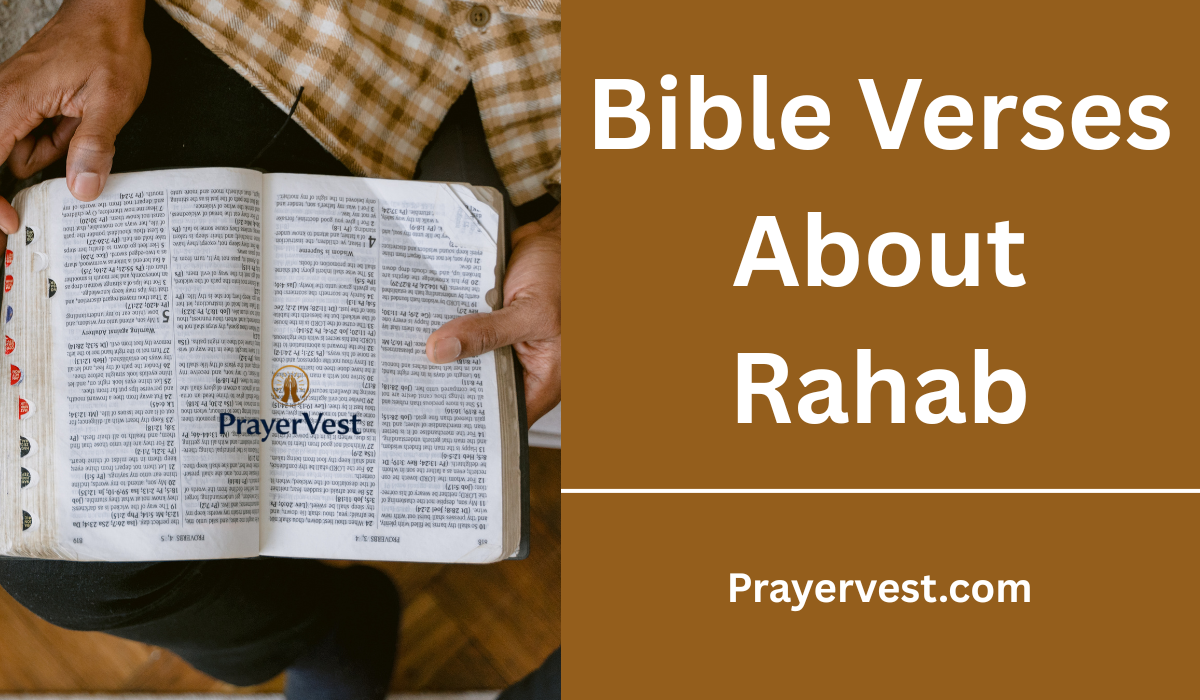

In the end, Rahab’s narrative serves as an example of how grace may transform. She was not only saved by her faith, but she also joined God’s purpose of redemption for humanity. The same God who spared Rahab’s life still shows mercy to everyone who believes in Him. The passages in the Bible concerning Rahab inspire us to put our past transgressions aside and welcome the possibility of salvation in Christ. Her path from sin to salvation serves as a timeless reminder that God’s love is available to everyone and that trust in Him has the power to permanently alter a person’s course in life.
40 Inspiring Bible Verses About Rahab (2026)
1. Joshua 2:1
“Then Joshua son of Nun secretly sent two spies from Shittim. ‘Go, look over the land,’ he said, ‘especially Jericho.’ So they went and entered the house of a prostitute named Rahab and stayed there.”
This verse introduces Rahab, a Canaanite woman whose name would later be immortalized in the lineage of faith. Despite her background, Rahab becomes a pivotal figure in Israel’s conquest narrative. Her home becomes the unlikely refuge for God’s chosen spies, symbolizing how God often uses unexpected vessels to fulfill divine purposes. Rahab’s story begins with hospitality and courage, setting the stage for her transformation from outsider to participant in God’s redemptive plan.
2. Joshua 2:4-5
“But the woman had taken the two men and hidden them. She said, ‘Yes, the men came to me, but I did not know where they had come from. At dusk, when it was time to close the city gate, they left. I don’t know which way they went.’”
Rahab’s act of hiding the spies reveals her boldness and discernment. Though her deception may appear questionable, it arises from faith and allegiance to God’s purposes rather than loyalty to her own city. This act of risk-taking for God’s people underscores her recognition of divine authority over national identity. In her courage, we see the beginnings of a faith that defies fear and cultural boundaries.
3. Joshua 2:9-11
“I know that the Lord has given you this land and that a great fear of you has fallen on us… for the Lord your God is God in heaven above and on the earth below.”
Rahab’s confession is one of the earliest declarations of faith by a non-Israelite in Scripture. Her acknowledgment of Yahweh’s sovereignty is not mere hearsay but a conviction born of revelation. She stands as a testament that faith is not inherited by birthright but received through belief. Her words foreshadow the inclusion of Gentiles in God’s plan of salvation—a truth fully realized in Christ.
4. Joshua 2:12-13
“Now then, please swear to me by the Lord that you will show kindness to my family… Give me a sure sign that you will spare the lives of my father and mother, my brothers and sisters, and all who belong to them.”
Here, Rahab’s faith turns into intercession. She pleads not only for herself but for her entire household, revealing a compassionate and covenantal heart. Her request reflects both faith and foresight—trusting the spies’ God enough to seek salvation for those she loves. In this moment, Rahab becomes an early picture of mediation and redemption, pointing toward Christ’s role as intercessor for humanity.
5. Joshua 2:18
“Unless, when we enter the land, you have tied this scarlet cord in the window through which you let us down… you will not be released from the oath you made us swear.”
The scarlet cord becomes a powerful emblem of salvation. It marks Rahab’s home as a place of divine protection amid destruction, mirroring the blood of the Passover lamb and later symbolizing the blood of Christ that delivers from death. This tangible sign anchors Rahab’s faith in visible obedience—demonstrating that true belief is always followed by faithful action.
6. Joshua 6:22-23
“Joshua said to the two men who had spied out the land, ‘Go into the prostitute’s house and bring her out and all who belong to her, in accordance with your oath to her.’”
Rahab’s deliverance is a testament to God’s faithfulness to His promises. The very walls of Jericho crumble, yet Rahab’s household stands untouched—a miracle within a miracle. Her obedience secured divine mercy, proving that God honors covenant loyalty and faith-filled action. Her rescue signifies the triumph of grace over judgment and the preservation of faith in the midst of ruin.
7. Joshua 6:25
“But Joshua spared Rahab the prostitute, with her family and all who belonged to her, because she hid the men Joshua had sent as spies to Jericho—and she lives among the Israelites to this day.”
Rahab’s inclusion among the Israelites reveals the depth of God’s grace and His power to redeem the past. No longer defined by her former life, she becomes part of God’s people—a new identity rooted in faith, not failure. Her story demonstrates that divine redemption is not limited by history or reputation; it is open to all who trust and obey the living God.
8. Matthew 1:5
“Salmon the father of Boaz, whose mother was Rahab, Boaz the father of Obed, whose mother was Ruth, Obed the father of Jesse.”
Rahab’s name reappears in the genealogy of Jesus Christ, highlighting the incredible reach of divine mercy. A once marginalized woman is woven into the Messianic lineage, linking her faith to the Savior of the world. Her story demonstrates that redemption is not only personal but generational—faith in God can change entire destinies and families through time.
9. Hebrews 11:31
“By faith the prostitute Rahab, because she welcomed the spies, was not killed with those who were disobedient.”
Rahab is celebrated in the “Hall of Faith” not for her background but for her belief. Her faith transformed fear into action and delivered her from destruction. This verse affirms that salvation is by faith, not by status or works, and that God’s grace welcomes all who trust in Him, regardless of their past.
10. James 2:25
“In the same way, was not even Rahab the prostitute considered righteous for what she did when she gave lodging to the spies and sent them off in a different direction?”
James highlights Rahab as an example of living faith—belief manifested through works. Her actions validated her confession and revealed a faith that was both courageous and compassionate. In her story, we see the harmony of faith and obedience, showing that true righteousness is active, dynamic, and aligned with God’s redemptive purposes.
11. Exodus 12:13
“The blood will be a sign for you on the houses where you are, and when I see the blood, I will pass over you. No destructive plague will touch you when I strike Egypt.”
This verse foreshadows Rahab’s story through the imagery of protection marked by blood. Just as the Israelites’ homes were spared because of the Passover sign, Rahab’s household was preserved by the scarlet cord in her window. Both symbols point to God’s mercy in judgment and the saving power of faith expressed through visible obedience.
12. Isaiah 1:18
“Though your sins are like scarlet, they shall be as white as snow; though they are red as crimson, they shall be like wool.”
Rahab’s life reflects this transformation beautifully. Once identified by her sin and scarlet shame, she becomes a symbol of cleansing and redemption. God’s grace turns her past into a testimony of His mercy. This verse encapsulates the divine ability to purify and restore those who come to Him in faith, no matter their past.
13. Psalm 87:4
“I will record Rahab and Babylon among those who acknowledge me—Philistia too, and Tyre, along with Cush—and will say, ‘This one was born in Zion.’”
In prophetic language, Rahab is listed among nations that will one day be counted as belonging to God. Though “Rahab” is often used poetically for Egypt, this verse also reflects a broader truth: that outsiders and former enemies can be reborn into God’s family. It echoes the inclusion of Rahab of Jericho as a spiritual citizen of Israel by faith.
14. Psalm 34:22
“The Lord will rescue his servants; no one who takes refuge in him will be condemned.”
This psalm perfectly parallels Rahab’s experience. She took refuge not in Jericho’s fortified walls but in the Lord’s promise of deliverance. Her faith granted her physical and spiritual rescue, reminding us that God never abandons those who trust Him—even in enemy territory or moral failure.
15. Psalm 91:4
“He will cover you with his feathers, and under his wings you will find refuge; his faithfulness will be your shield and rampart.”
Rahab experienced this divine covering as she hid the spies and later awaited Jericho’s fall. God’s faithfulness became her protection amid chaos. Like Rahab, those who find refuge under His wings are kept safe even when destruction surrounds them, proving that divine shelter is stronger than human fortifications.
16. Proverbs 18:10
“The name of the Lord is a fortified tower; the righteous run to it and are safe.”
Rahab’s house on Jericho’s wall became her fortress not because of its structure, but because of the God she trusted. This proverb captures that truth—real safety lies not in walls or armies, but in the name of the Lord. When Rahab invoked God’s name in faith, she found unshakable protection and a new identity.
17. Ruth 1:16
“Where you go I will go, and where you stay I will stay. Your people will be my people and your God my God.”
Rahab’s choice to join Israel mirrors Ruth’s later confession. Both women were Gentiles who abandoned their former lives to embrace the covenant God of Israel. Their faith journeys testify that God’s family is open to all who willingly turn to Him, regardless of background, ethnicity, or past.
18. Isaiah 51:10
“Was it not you who dried up the sea, the waters of the great deep, who made a road in the depths of the sea so that the redeemed might cross over?”
This verse recalls God’s power to deliver His people through impossible circumstances. Just as the Red Sea parted for Israel, Rahab’s house stood firm amid Jericho’s collapse. Both acts of salvation reveal a God who makes a way for the faithful even when surrounded by destruction or despair.
19. Micah 7:18
“Who is a God like you, who pardons sin and forgives the transgression of the remnant of his inheritance?”
Rahab’s redemption reflects this divine mercy. God did not judge her by her past but welcomed her through repentance and faith. Micah’s words celebrate the same grace—one that forgives, restores, and transforms. Rahab stands as living proof that God’s compassion triumphs over condemnation.
20. Romans 3:22-23
“This righteousness is given through faith in Jesus Christ to all who believe. There is no difference between Jew and Gentile, for all have sinned and fall short of the glory of God.”
Rahab’s life embodies this gospel truth long before Paul wrote it. Her faith, not her nationality or record, justified her before God. This verse affirms that salvation is available to everyone who believes, just as Rahab, a Gentile woman of ill repute, was declared righteous through her faith in the living God.
21. Romans 5:8
“But God demonstrates his own love for us in this: While we were still sinners, Christ died for us.”
Rahab’s rescue from destruction foreshadows the love of God that seeks sinners before they ever seek Him. She didn’t earn her salvation—it was offered through mercy. Likewise, Christ’s sacrifice reveals a love that reaches into brokenness, turning the condemned into the redeemed.
22. 2 Corinthians 5:17
“Therefore, if anyone is in Christ, the new creation has come: The old has gone, the new is here!”
Rahab’s transformation from prostitute to matriarch in Christ’s lineage exemplifies this promise. Her old identity was erased, and she became a new creation through faith. This verse captures the heart of Rahab’s story—God’s power to redefine lives and rewrite legacies through grace.
23. Ephesians 2:8-9
“For it is by grace you have been saved, through faith—and this is not from yourselves, it is the gift of God—not by works, so that no one can boast.”
Rahab’s salvation wasn’t earned by her cleverness or courage alone; it was the result of grace received through faith. Paul’s words affirm this eternal truth: salvation is God’s gift, not a human achievement. Rahab’s faith shows how even the least likely can be chosen as vessels of divine grace.
24. 1 Peter 2:10
“Once you were not a people, but now you are the people of God; once you had not received mercy, but now you have received mercy.”
Rahab’s adoption into Israel mirrors the inclusion of Gentile believers into God’s family. Once alienated, she was embraced as one of God’s own. This verse encapsulates the gospel’s power to turn strangers into sons and daughters, and to bring the once-forgotten into covenant belonging.
25. Revelation 12:11
“They triumphed over him by the blood of the Lamb and by the word of their testimony; they did not love their lives so much as to shrink from death.”
Rahab’s victory came through faith and testimony. She risked her life to align with God’s people, overcoming fear through belief in the Almighty. Like the saints in Revelation, her triumph was sealed by divine protection and courageous witness—proof that faith in God conquers even the strongest strongholds.
26. Romans 10:9-10
“If you declare with your mouth, ‘Jesus is Lord,’ and believe in your heart that God raised him from the dead, you will be saved. For it is with your heart that you believe and are justified, and it is with your mouth that you profess your faith and are saved.”
Rahab’s verbal confession of God’s sovereignty—“the Lord your God is God in heaven above and on the earth below”—mirrors this declaration of faith. Long before Christ, she demonstrated belief from the heart and confession with the mouth. Her words and actions together became her pathway to salvation, illustrating how genuine faith must be both believed and spoken.
27. Philippians 3:13-14
“Forgetting what is behind and straining toward what is ahead, I press on toward the goal to win the prize for which God has called me heavenward in Christ Jesus.”
Rahab’s life is a living example of leaving the past behind. She did not remain trapped in her identity as a prostitute or a Canaanite; instead, she reached toward God’s promise and a new destiny among His people. This verse reflects her spiritual journey—pressing forward into divine purpose and transformation, unhindered by her past.
28. Galatians 3:28
“There is neither Jew nor Gentile, neither slave nor free, nor is there male and female, for you are all one in Christ Jesus.”
Rahab’s inclusion into Israel’s faith community foreshadows the unity described in Galatians. Her story breaks barriers of ethnicity, gender, and social class. It testifies that faith in God transcends all boundaries and that divine acceptance is grounded in belief, not birthright.
29. 1 Samuel 2:8
“He raises the poor from the dust and lifts the needy from the ash heap; he seats them with princes and has them inherit a throne of honor.”
This verse vividly captures Rahab’s transformation. From the lowliest position in society, she is elevated to royal lineage through her faith. God’s grace not only redeems but also exalts those who trust Him. Rahab’s rise from shame to honor fulfills this divine pattern of raising the humble and confounding the proud.
30. Isaiah 43:25
“I, even I, am he who blots out your transgressions, for my own sake, and remembers your sins no more.”
Rahab’s new life among the Israelites was a clear act of divine forgetfulness—her past no longer defined her. God’s mercy erased her history of sin, replacing it with a legacy of faith. This verse expresses the same principle: God forgives fully, restores completely, and remembers sin no more.
31. Luke 7:47
“Therefore, I tell you, her many sins have been forgiven—as her great love has shown. But whoever has been forgiven little loves little.”
Rahab’s love was expressed through her courageous actions—risking everything to protect God’s people. Like the woman in this verse, her faith-driven love proved the depth of her transformation. Those who experience profound forgiveness often respond with bold devotion, and Rahab’s life radiates that truth.
32. 1 Corinthians 1:27-28
“But God chose the foolish things of the world to shame the wise; God chose the weak things of the world to shame the strong.”
Rahab’s life embodies this divine reversal. A marginalized woman from a condemned city became a central figure in God’s redemptive history. Her story defies human expectation, showing that God delights in using the unlikely and the overlooked to accomplish His greatest purposes.
33. Isaiah 54:10
“Though the mountains be shaken and the hills be removed, yet my unfailing love for you will not be shaken nor my covenant of peace be removed,” says the Lord, who has compassion on you.”
Even as Jericho’s walls fell, Rahab’s household stood firm under God’s covenant of mercy. This verse encapsulates her experience—God’s unfailing love remaining unshaken amid chaos. His compassion protected her and her family, confirming that His promises are stronger than destruction.
34. Hebrews 13:2
“Do not forget to show hospitality to strangers, for by so doing some people have shown hospitality to angels without knowing it.”
Rahab’s story exemplifies divine hospitality. By welcoming the spies, she unknowingly welcomed God’s plan for salvation into her home. Her open door became a gateway to redemption. This verse reminds believers that acts of kindness toward strangers can become sacred moments of encounter with God’s purposes.
35. John 3:16
“For God so loved the world that he gave his one and only Son, that whoever believes in him shall not perish but have eternal life.”
Rahab’s salvation amid Jericho’s destruction is a shadow of this eternal promise. She believed and was spared, while unbelief led to ruin. Her faith demonstrates the timeless truth of God’s love—that whoever believes, regardless of past sin or background, receives life instead of death.
36. John 8:11
“Then neither do I condemn you,” Jesus declared. “Go now and leave your life of sin.”
These words to the woman caught in adultery echo the spirit of Rahab’s redemption. Both women encountered mercy that did not condemn but transformed. God’s grace not only forgives but empowers a new beginning, inviting believers to step out of their past and into His purpose.
37. Psalm 103:12
“As far as the east is from the west, so far has he removed our transgressions from us.”
Rahab’s past life was completely erased by God’s mercy. She was no longer known as a sinner but as a woman of faith. This verse beautifully captures the distance between condemnation and redemption—God separates believers from their sins so completely that they can never be reunited.
38. Revelation 21:5
“He who was seated on the throne said, ‘I am making everything new!’ Then he said, ‘Write this down, for these words are trustworthy and true.’”
Rahab’s life is a living testimony of God’s power to make all things new. From disgrace to honor, from ruin to restoration, she was completely renewed. This verse extends that same promise to all believers: no past is beyond God’s ability to transform into a new creation.
39. Psalm 46:1
“God is our refuge and strength, an ever-present help in trouble.”
Rahab found refuge not in her city’s defenses but in God Himself. When destruction came, He became her strength and shield. This psalm reflects her experience—faith in God transforms fear into safety, turning even a crumbling wall into a sanctuary of salvation.
40. Revelation 22:14
“Blessed are those who wash their robes, that they may have the right to the tree of life and may go through the gates into the city.”
Rahab once lived in a doomed city, but through faith, she gained entrance into the eternal one. Her redemption points forward to this final promise: those cleansed by God’s mercy will dwell forever within His holy city. Her story begins with earthly walls but ends with heavenly gates—an everlasting symbol of grace and restoration.
Conclusion
Rahab’s narrative is a brilliant illustration of how God’s grace can extend redemption even to the most hopeless situations. Her acts of faith indicate that one’s belief in God is not constrained by one’s circumstances, reputation, or upbringing. Rahab’s journey from a harlot in Jericho to a lady revered in Jesus’ lineage shows that no one is beyond God’s ability to save them. Her bravery in standing with God’s people in the face of cultural and urban opposition is a timeless reminder that faith frequently necessitates audacious choices based on obedience and trust.
God enjoys rewriting the stories of people who trust in Him, as we are reminded when we consider the Bible passages concerning Rahab. Her story serves as a reminder to put fear aside, have confidence, and trust that God can use any life to accomplish His purposes. Christ’s blood marks our redemption today, just as Rahab’s scarlet cord represented rescue and deliverance. The unbounded scope of divine grace—a grace that changes, heals, and employs flawed individuals for the glory of God’s everlasting plan—is demonstrated to us via Rahab’s journey.


